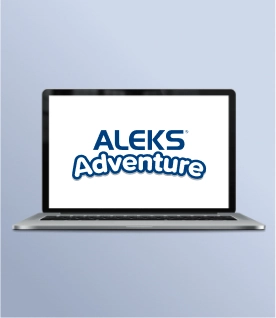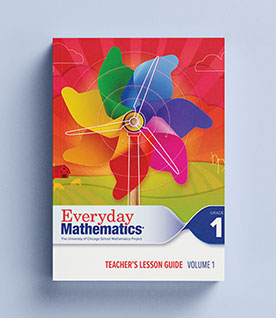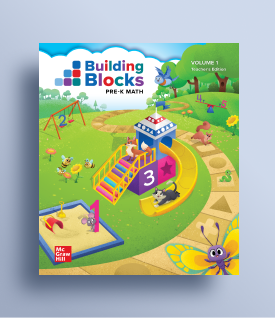My Account Details
McGraw Hill – Your Partner in Understanding and Implementing NGSS*
McGraw Hill has a long history of providing the highest quality curriculum materials for educators and offers a seamless solution to schools transitioning to the new Next Generation Science Standards. Let McGraw Hill's expertise in instruction and assessment help you implement the standards smoothly, effectively and successfully.
We are committed to ensuring that you have the tools and resources necessary to meet the expectations for the next generation of science standards.
What is NGSS?
The purpose of the NGSS Framework is to act as the foundation for science education standards while describing a vision of what it means to be proficient in science. It emphasizes the importance of the practices of science where the content becomes a vehicle for teaching the processes of science.
Each standard is a combination of these three dimensions...
- Scientific and Engineering Practices are the skills and behaviors used by individuals in the pursuit of scientific inquiry and engineering design.
- Crosscutting Concepts are the themes of science that provide an essential organizational schema for linking the domains together, making connections between various science concepts to create a coherent, scientifically based view of the world around us. They include: Patterns; Cause and Effect; Scale, Proportion and Quantity; Systems and System Models; Energy and Matter in Systems; Structure and Function; Stability and Change of Systems.
- Disciplinary Core Ideas are the broad, organizing concepts of science around which student learning is connected to life experiences or societal/personal concerns. They embody key understandings of complex ideas that develop over time with greater levels of depth and sophistication. Disciplinary ideas are grouped in four domains: the physical sciences; the life sciences; the earth and space sciences; and engineering, technology and applications of science. McGraw Hill is committed in providing the best curriculum for students and teachers. We are in the process of researching the NGSS and will be developing an alignment of all our current K–12 science products to the NGSS. And with that, we will guide you in understanding and implementing these new standards in the classroom.
Why NGSS?
The NGSS were developed in an effort to create unified standards in science education that consider content, practices, pedagogy, curriculum, and professional development. The standards provide all students with an internationally benchmarked education in science.
The Next Generation Science Standards are NOT part of the Common Core State Standards (CCSS).
Our Expert Advice

The Next Generation Science Standards are a fresh opportunity for science educators to develop a clear and nationally shared vision for what science education can be for all students. The NGSS build on our previous successes and incorporate the advances in our understanding of how people learn science with forward looking science, allowing us to truly prepare for the next generation."
Craig Gabler
NGSS writing team member

When I think of the science classroom of the future, I envision students engaged with technology and hands-on science that incorporates 21st century thinking in response to real-world issues and problems. Students of all ages will use technology to incorporate engineering, scientific literacy, and problem-solving skills to make a better tomorrow."
Jaymee Herrington
NGSS writing team member

"The Next Generation Science Standards will allow science education to move from an industrialized format of memorizing a set of facts to one that is comprised of three dimensions (practices, core ideas, and cross-cutting concepts) all being used at the same time to investigate and solve problems. The idea that science and engineering are separate entities will disappear."
Julie Olson
NGSS writing team member

The Next Generation Science Standards will revolutionize science education. No longer will science concepts be taught and assessed in isolation of the way real-world science and scientists operate. Instead, science instruction will be holistic and cooperative, teaching students skills that are transferrable to the workplace."
Julie Pepperman
NGSS writing team member

The Next Generation Science Standards provide an opportunity to integrate scientific and engineering practices, crosscutting concepts, and disciplinary core ideas into instruction. The focus is no longer solely on content but rather on cultivating scientific habits of mind in our students."
Kenneth Huff
NGSS writing team member

The Next Generation Science Standards herald a new era in science education. Not only do the NGSS address the ever-changing scope of science disciplines, they approach learning in a pedagogically sound way. Through the NGSS, science is viewed as a self-correcting, process-driven, human endeavor which allows for more inter-disciplinary collaboration among its young followers—not a static laundry list of known facts."
Paula Messina
NGSS writing team member

The Next Generation Science Standards will serve as a lighthouse to help guide science educators as they equip the workforce of tomorrow. These standards will help ensure that our students possess the needed skills and knowledge required for them to be successful, productive, contributing members of society."
Zoe Evans
NGSS writing team member
*NGSS is a registered trademark of Achieve. Neither Achieve nor the lead states and partners that developed the Next Generation Science Standards was involved in the production of, and does not endorse, this product.













































